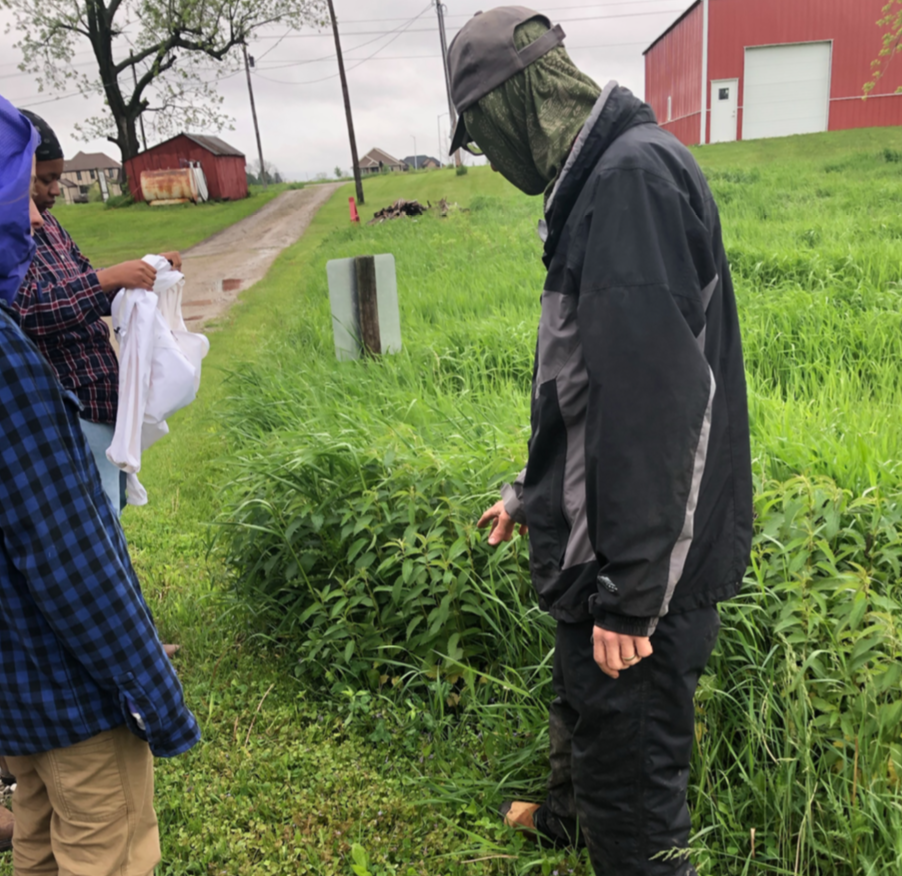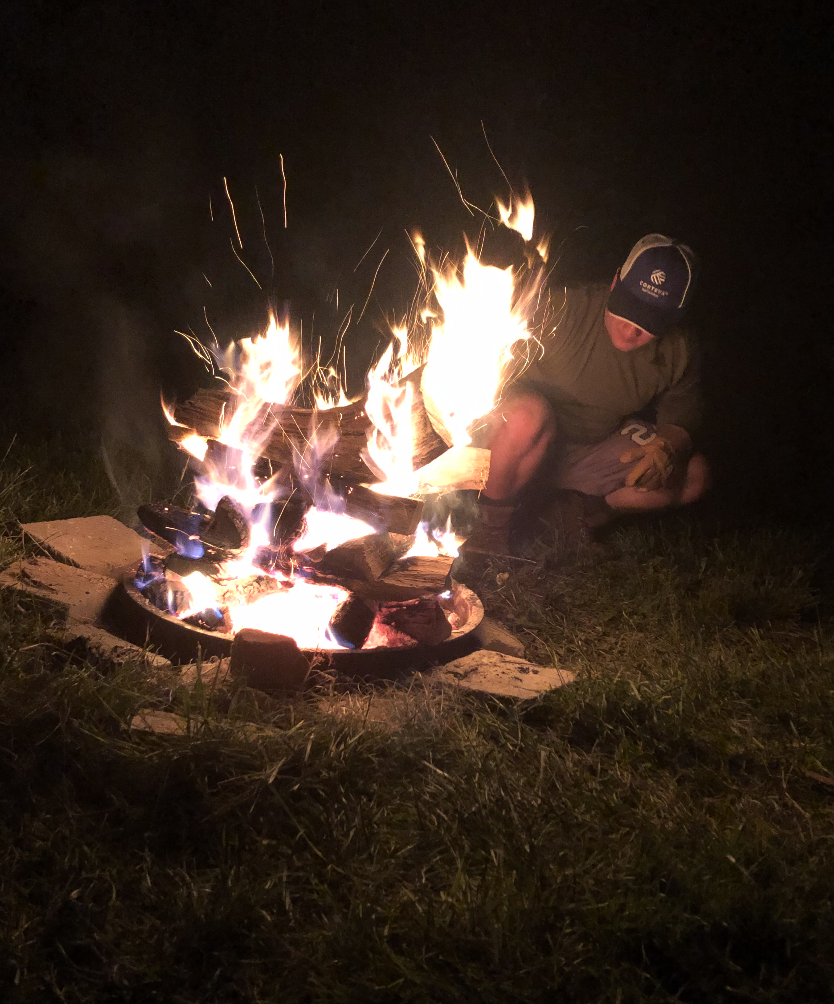Over the last two days, the group has visited an organic farm, community farm, and a conservancy across Iowa. At Grinnell Heritage Farm, Brandon and I were immediately singled out for wearing our Corteva hats, not worn intentionally, but out of convenience. This would set the tone for the first half of the visit… doom and gloom. The world will end if we do not mitigate the environmental issues pesticides cause! And pesticides and herbicides kill all organisms in the soil, were along the lines of what we were told. Following the lecture, we moved outside and the assistant took over the conversation as the owner of Grinnell had to step away for a moment. He continued the doom and gloom speech and was then asked about his diet. He discussed foraging for his food, as he eats almost no meat, and eats weeds out of his yard, such as stinging nettle. We then were taken on a tour fo their land and taught about their agriculture principles; as they do not use any chemicals to be an organic farm, they instead use other plants to shade out weeds and add nitrogen back into the soil.
Our next stop was at Red Earth Gardens on the Meskwaki Settlement. The Meskwaki is the only Federally Recognized Indian Tribe in Iowa, and they own their land, thus are not on a reservation. This results in more autonomy. Red Earth Gardens goal is to help the community become more educated on what they are eating and to help in assisting the community. An example of this is a job program where those who might have struggled with jobs in the past are employed and guided through the process and taught new skills with the goal of helping them start their own business or become employed in a field of their choosing. They grow organically and also use plants and cover crops to assist instead of crop controls. The farm’s permaculture specialist, Adam Ledvina, believes strongly in rotational grazing, like Brian Wosepka, and will be using the same method with chickens, when he introduces them to Red Earth later this year.

We then slept, and the next morning traveled to Whiterock Conservancy where we first helped in removing thistles and Dame’s Rocket, another invasive weed, from the land after goats had already grazed the honeysuckles away. As the group did this we befriended the goat’s guard donkey “Raji” who was extremely kind until someone encroached on the goats, proving his worth. After a great lunch outside we then met with Liz Garst, a prominent Iowa Democrat and soil conservationist. She discussed all sides of soil problems but came across as having a reasonable view and not too extreme. She believes that the free market should exist and should not be regulated but knows that regulations must be put in place to achieve safe water and healthy soil. She believes that like the ’86 Farm Hill subsidies should be linked to performance. However, because soil only regenerates 1/2 a ton of topsoil a year we can not revert to the ’86 Farm Bills regulation of 5 or fewer tones a year. The subsidies should assist the farmer in achieving this goal, and there MUST be enforcement of these standards for it to work. She attempted to be modest my saying she has a small 3,500+ acre farm, however, that is massive compared to what we have been told is even a large farm. She uses pesticides, but also no-till. She believes in a balance and no extremes. We ended the night with a great meal of rice, beans, burgers, and hot dogs followed by a bonfire with smores. Whiterock Conservancy has been a great destination.

